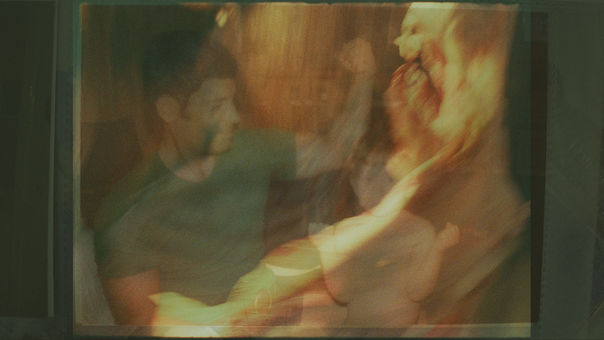The Unbearable Intimacy of Being
By Narjes Torchani

© Omar Shargawi
The disappearance of a father is like an apocalypse. You walk through a new life, unknown, and your old life is gone forever. The hell of grief has somehow also been a heaven for the Danish-Palestinian director Omar Shargawi, who said that at the moment of his father’s death, he forgave him for everything. Starting from this moment, which occurs in the last part of his documentary WESTERN ARABS, the camera becomes steadier. Before this, the camera movement reflects the inner confusion of the director’s mind, which he uses to express his feelings. Transparency doesn’t seem to scare him, although after watching his film, screening in the Panorama documentary section of the Berlinale, one can’t help but acknowledge his courage in exposing his personal and family life in its darkest corners, as well as the delicacy of the editing that formulates an intimate and poetic narration through a deconstructed structure.
Omar’s father is at the centre of the film. He is the element that chains the director to his Palestinian origins, indirectly causing him to live the life of a wanderer, constantly looking for himself. One of the first subjects that the director talks about is the racism he faced as a kid in Denmark. Still, his main trauma comes from the violent environment he grew up in, caused by this same father and demonstrated through fragmented images of family gatherings and footage from the director’s past films. They mostly end in a violent fight where the camera falls on the floor. These rough images are punctuated by long monologues that Omar Shargawi recites in his car, calmly facing a steady camera. He thus creates and opposes two atmospheres that describe how he sees himself from the outside, and how he really feels inside.
WESTERN ARABS’s director insists that we inherit our ancestor’s traumas. This is expressed through his focus on his father’s constant denial and stubbornness towards his confessions. When his father passes away, the monologues and the family images are no longer opposed. The chaotic structure of the film is meant to reflect a personal alienation and points to the awfulness of our contemporary world, but does Omar find peace? The answer is outside the monologues and the frame of the movie, but filmmaking is wonderfully used by the director as a cathartic process.

